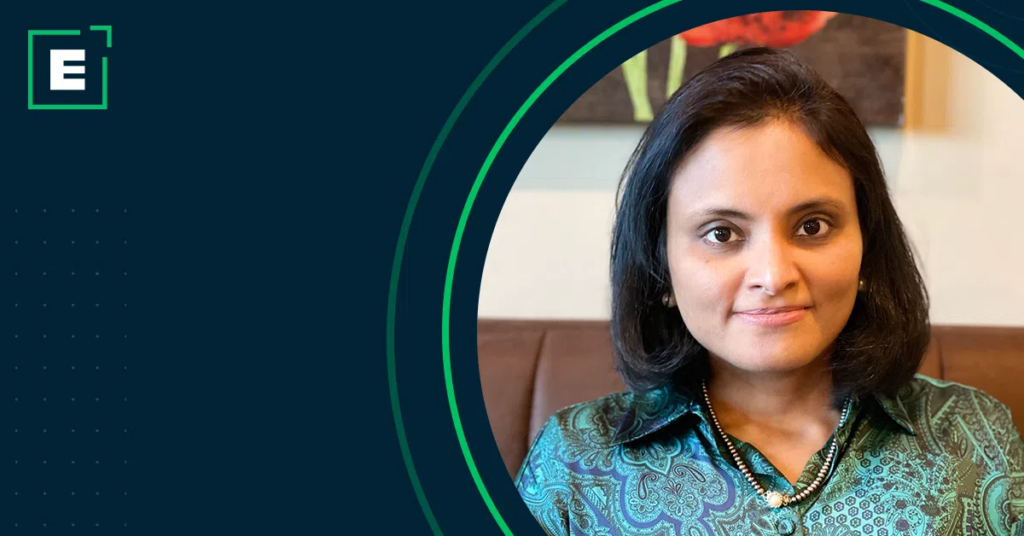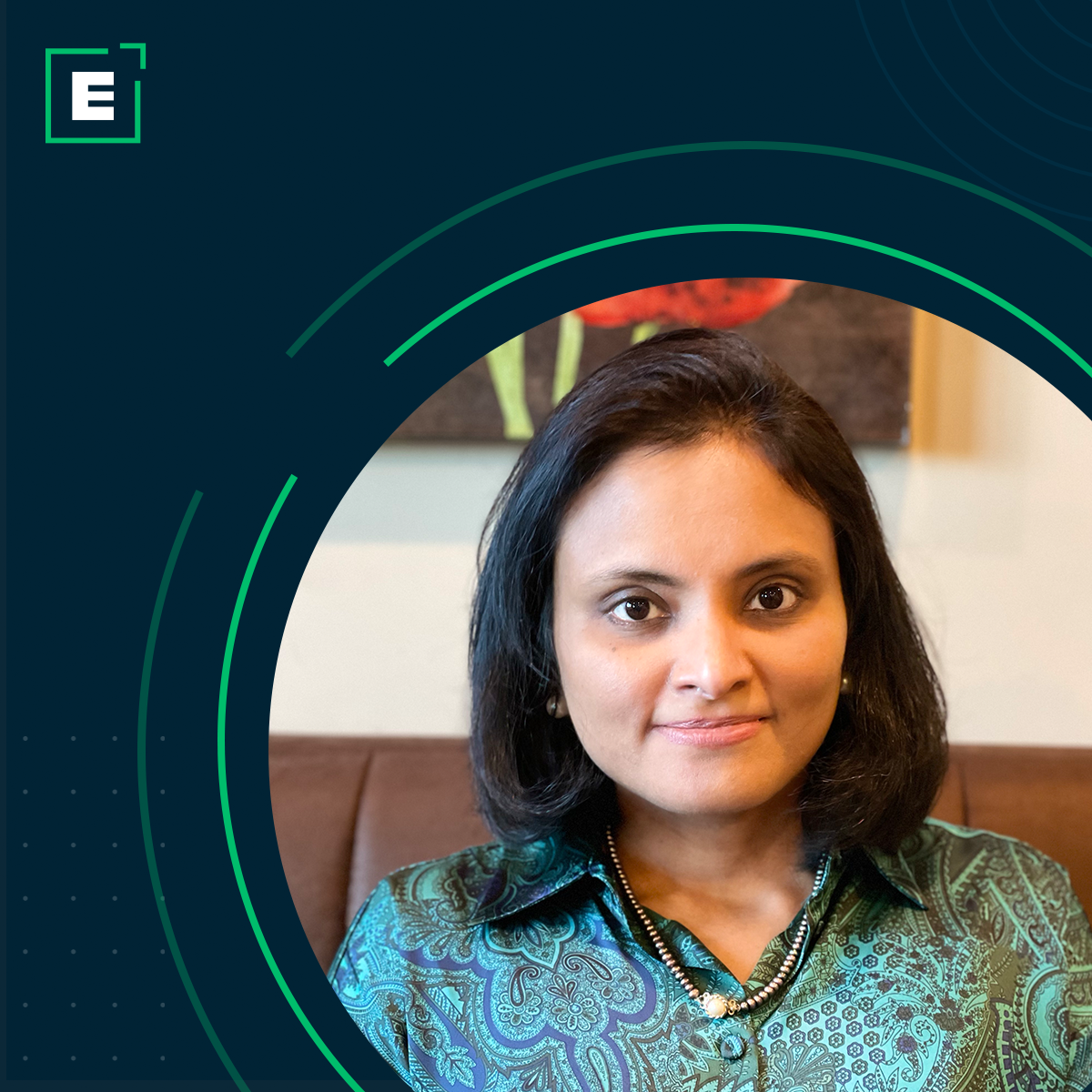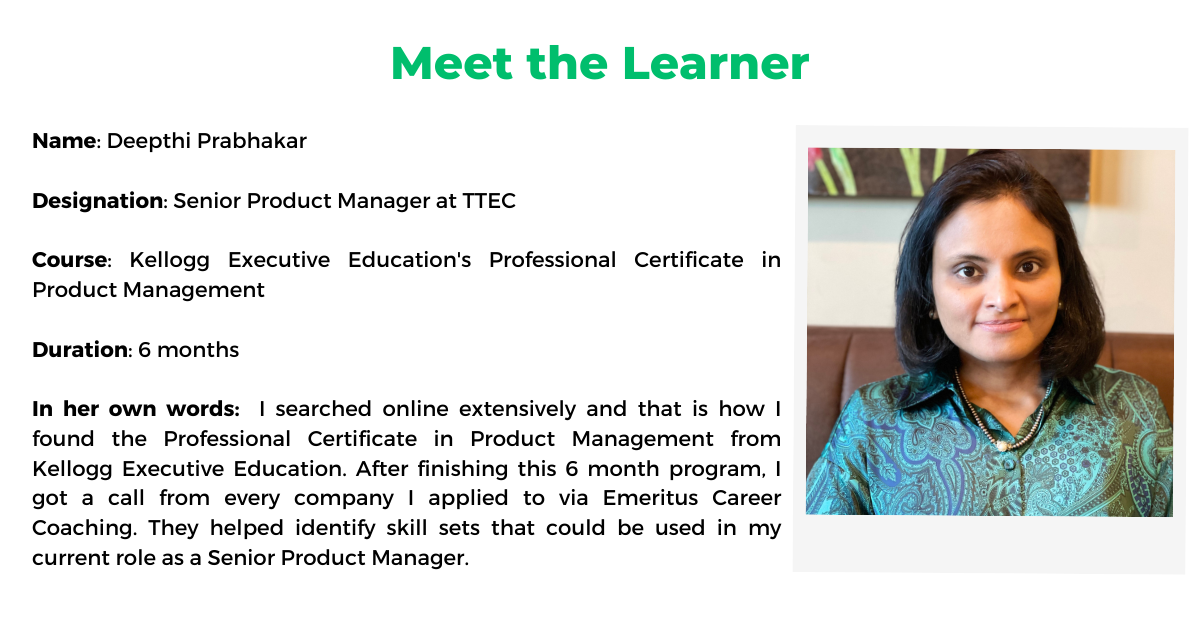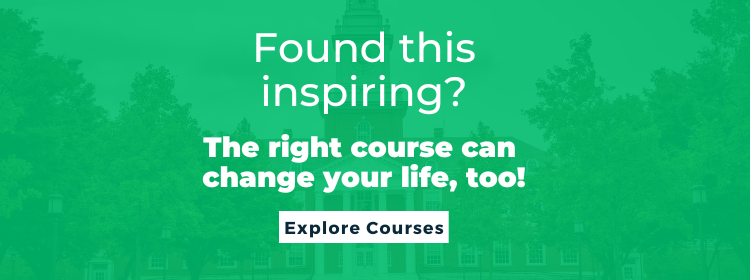How Kellogg’s Product Management Program Added Value to Deepthi’s Career

- Before product management, there was people management
- How does one move into product management?
- How does one choose the best product management program online?
- What are the key takeaways from this product management program?
- Does a product management certification add value to your career?
- How difficult is it to complete this product management course?
- Does the program make you more employable?
She has 15+ years of experience in the technology industry. She has spearheaded a digital transformation in renowned companies such as Pearson and is also a mom to two kids. Deepthi Prabhakar, senior product manager at TTEC, has many feathers in her cap. The latest is a Professional Certificate in Product Management from Kellogg Executive Education. We were lucky to catch up with her on her journey before and after this product management course. She also gave us valuable insights on what people aspiring to work in product must keep in mind.
In fact, a closer look at her career trajectory may answer some of the FAQs for professionals looking to move into product management. For those unfamiliar with the role, product management is a function that requires a careful understanding of all stages of the product life cycle, from researching and proposing innovative products to launching them and assuring the quality and profitability of the products.
Here’s how Prabhakar charted her career path to move into her dream role in product management.
Before product management, there was people management
The role of a product manager is an interesting one. It’s not just about having technical knowledge. Such knowledge is most prominently required in technology companies, but the role itself is heavily dependent on soft skills as well as an understanding of marketing. So, it naturally begs the question: What was Prabhakar working on before she made the switch to product development?
“I was leading the digital transformation of Pearson’s enterprise systems. It required me to work with multiple vendor teams and internal employees, so I was a people manager. My job was to ensure that whatever went out was of top-notch quality,” she says.
How does one move into product management?
 It is not unusual for professionals from different functions within technology or marketing to move into product at some point in their careers. So, what prompted Prabhakar to move from a quality assurance and people management role into a product portfolio one?
It is not unusual for professionals from different functions within technology or marketing to move into product at some point in their careers. So, what prompted Prabhakar to move from a quality assurance and people management role into a product portfolio one?
“Once the business enterprise project was over, I wondered what my next steps (in terms of career) should be,” she explains. At this point in time, her attention was drawn to product management as a function. She has worked with the product management team before, and their work has caught her interest. Prabhakar continues, “So, I watched some webinars to understand what it is that product managers do. I also went back and observed our product team to see how they make decisions.”
And it so happened that the more she learned about product management, the more interested she became. “That is when I realized that I need to learn about product management structurally. I am a software engineer and have experience in technology. But product management requires more than that. It requires an understanding of marketing, financial analysis, and profitability,” says Prabhakar.
Related Content: How to Become a Product Manager
How does one choose the best product management program online?
“I searched online extensively and that is how I found the Professional Certificate in Product Management from Kellogg Executive Education,” says Prabhakar. But there were many options available to her. What helped her seal the deal for an Emeritus product management course? “I would have to quit my job and live on campus for an 18-month MBA in product management. That would not work out for me as I wanted to do something along with my job. I have two kids and other obligations,” she explains.
The timing was right for Prabhakar and Emeritus to connect. An impressive webinar by Dr. Mohanbir Sawhney, a member of Kellogg Executive Education’s faculty, finally convinced Prabhakar to zero in on this program. “He gave an overview of the structure of the product management course, and I saw how it covered all the stages of the product life cycle,” she adds.
Professor Sawhney has quite the following among marketers. “He is not just an academician. He has lots of industry experience, and that is what makes the difference. Dr. Sawhney has helped companies set up products and divisions. He speaks from a place of experience. In fact, you can keep going back to his sessions for guidance,” says Prabhakar. We concur!
What are the key takeaways from this product management program?
Prabhakar gave us a gist of the key highlights of the Professional Certificate in Product Management from Kellogg Executive Education in her uniquely articulate style. They are:
- The basics of artificial intelligence and machine learning
- How to create a product strategy
- How to create a product road map
- The process of creating a minimum viable product
- An understanding of product-market fit
All this, coupled with basic concepts of product management, helped her get a foundation in the field she was about to venture into.
Does a product management certification add value to your career?
Prabhakar answered with a resounding yes! To begin with, she found herself contributing more productively at work. “I was doing quality engineering within Pearson. The learning helped me participate in regular meetings. I could contribute toward prioritization, the discovery phase of a new product, and in coming up with Jobs-to-be-done, in which I ran a workshop prioritizing the features,” she says. “Usually, I was called as an optional participant in the GTM (go to market) meetings. While taking this course, I started participating and speaking up in these meetings. That was a big change for me.”
Related Content: What Does a Product Manager Do?
How difficult is it to complete this product management course?
For this question, Prabhakar does not mince her words. “It was not easy. I had to put in 14-15 hours a week,” she explains, drawing attention to the intensive nature of the program. However, she added that for her, the timing was perfect as she was working from home. She also says that the program was a foundation, but a product manager must keep a keen eye on the developments in the industry. That, according to Prabhakar, is the only way to keep growing!
Does the program make you more employable?
“I got a call from every company I applied to via Emeritus Career Coaching. They helped identify skill sets that could be used in the current role as product manager!” she exclaims. Prabhakar was able to successfully transition her career, as she drew from both her new knowledge of product management and her extensive experience in software engineering. And that is the recipe for a long and fruitful career!
You can learn more about the Professional Certificate in Product Management from Kellogg Executive Education here.
For feedback, write to us at content@emeritus.org
Emeritus Careers affiliated with Professional Certificates offers a complimentary and optional Career Development course to participants and helps them access additional, individualized career coaching and resume referrals to employer partners. We have partnered with organizations such as TsTEC to connect with prospective employers. Brands who are looking to reach out to great talent such as Deepthi Prabhakar can learn more here.




